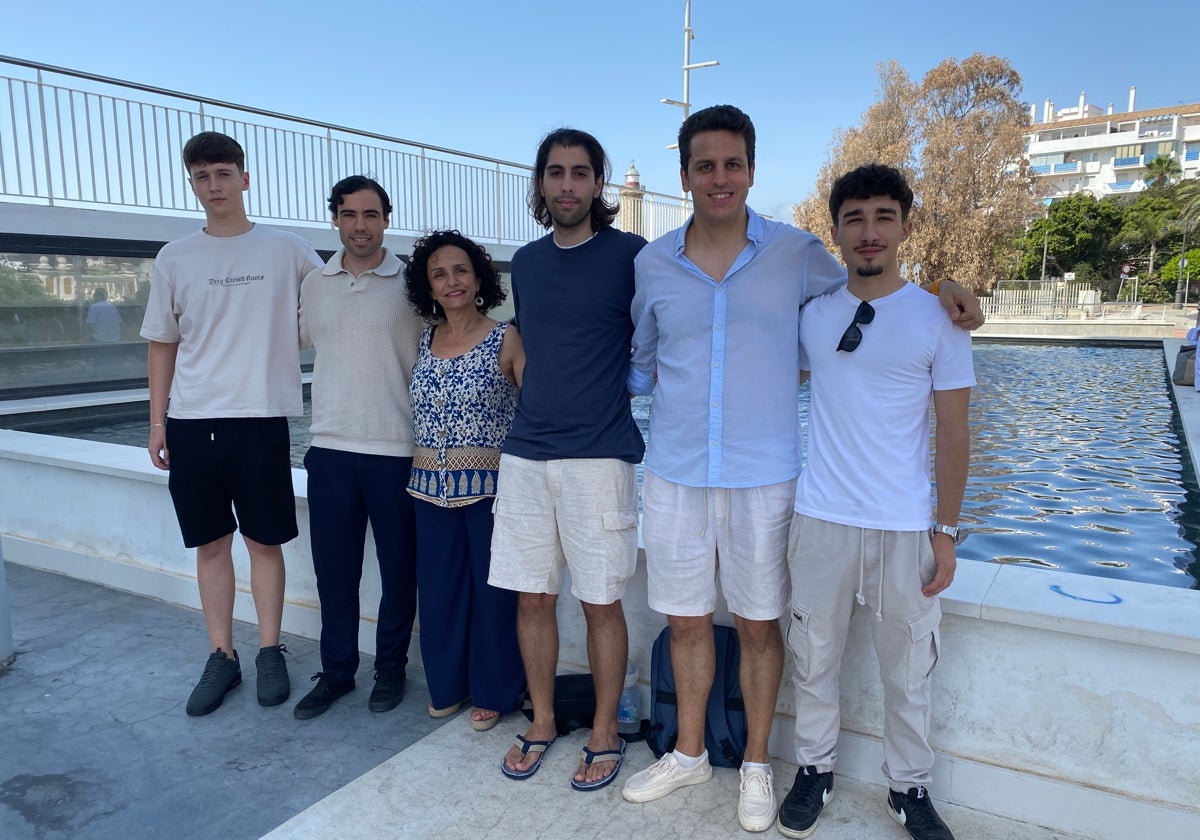Estepona school students create accessible tourist website for people with or without disabilities
They have developed IncluyeteEstepon@ which offers accessibility information for people with disabilities to shops, museums, public buildings, bars, restaurants, hotels, beaches, etc
Carlos Torralvo, Vasile Macovei, Álvaro Márquez, Alejandro Quirós and Salvador Jiménez are five students of Eva Tortosa - Database teacher at IES Mar de Alborán secondary school in Estepona - who have created a unique tourist website. For some months now, they have been joining efforts to create IncluyeteEstepon@ - a platform that seeks to facilitate accessible tourism for all people, with or without disabilities, in Estepona.
Their project received first prize this past June, unanimously awarded by the jury at the Ideas de Emprendimiento Social Digital Ben Gabirol contest, organised by the Arrabal-AID association.
The students, who are completing a two-year vocational training, have discovered a niche market related to accessibility for people with disabilities to shops, museums, public buildings, bars, restaurants, hotels, beaches, etc. The tourism and IT departments of Estepona town hall have already shown interest in implementing their website.
The contest united them in the creation of "a website that would highlight the accessible places in Estepona, for everyone, both from the point of view of economic development and tourism well-being". According to the boys, "15% of the global population has some kind of disability", which motivated them to help make Estepona become "a pioneering town in having complete accessibility in all areas". According to them, Estepona is the perfect location for testing the tool, serving "as a technological laboratory, as it is not as saturated as other towns". Another goal of these young innovators is to facilitate the "development of the town in terms of accessibility".
What is new about this project compared to other, already existing proposals? "We have detected that many important websites gather information for people with disabilities but do not technically have some of the adjustments required by these people. We want to focus on a website that can be used by everyone. If they can't use it, it's not a user-friendly website," they said.
The students were not motivated by a personal story related to a family member, but by pure social consciousness. They believe that the problem "has an easy solution". "We are developing a global website, which includes all the activities, shops and everything there is in Estepona, paying special attention to people with high-contrast sensitivity," referring to patients with cataracts, glaucoma, diabetic retinopathy, macular degeneration and other retinal diseases that can affect contrast sensitivity.
But the project does not end with the website, because the idea is to make a mobile app. This will be another challenge for these young developers, because the website will have to look good on a smaller screen as well. They are also planning a study related to the scalability of the project to other towns.
"IncluyeteEstepon@ has just come into being and is already helping them finish their degree project, advance their knowledge in the second year and launch their own company. It's a real win-win situation," said Eva Tortosa. "I am proud to see them so involved."


Comentar es una ventaja exclusiva para registrados
¿Ya eres registrado?
Inicia sesiónNecesitas ser suscriptor para poder responder.
Necesitas ser suscriptor para poder votar.